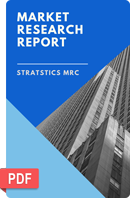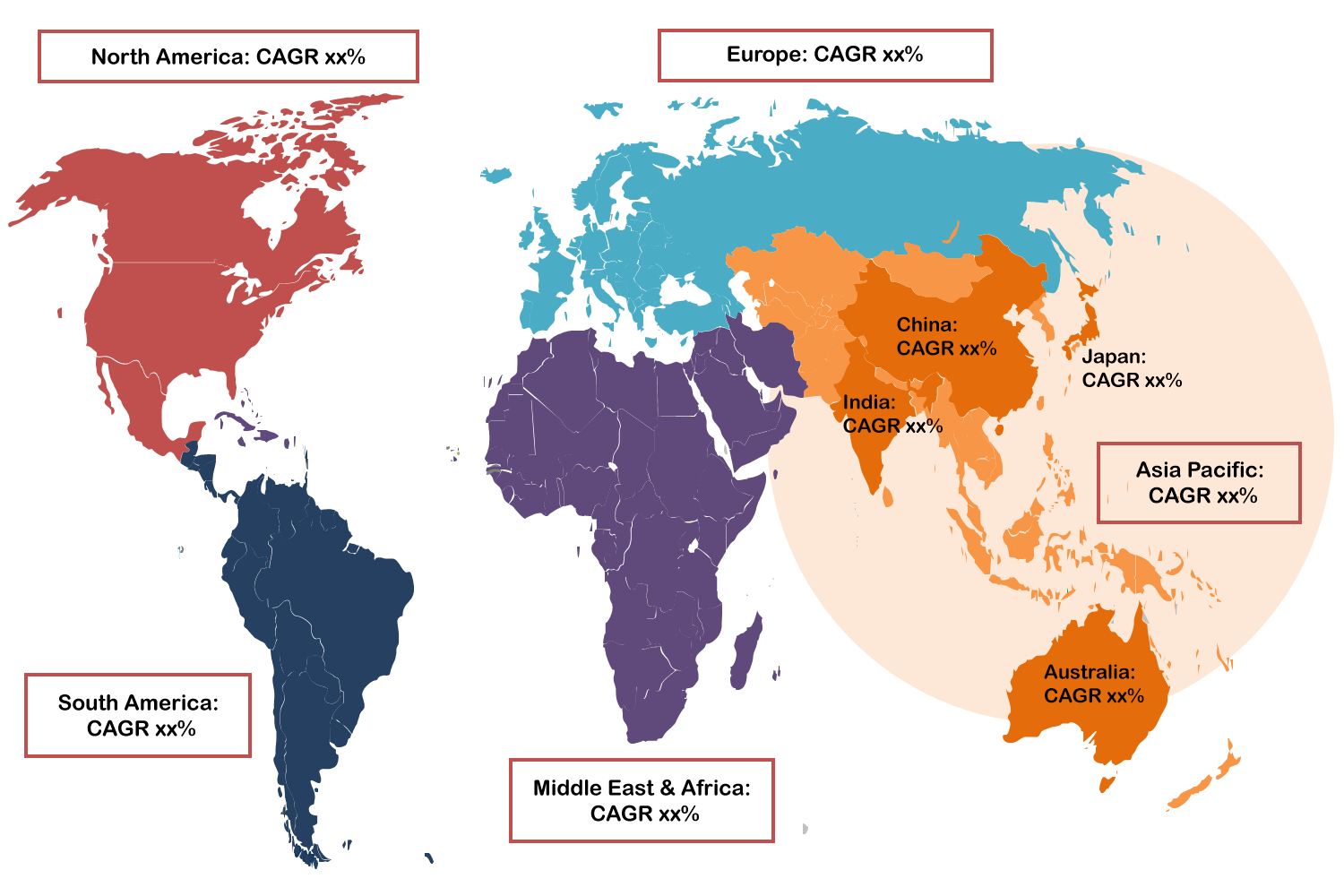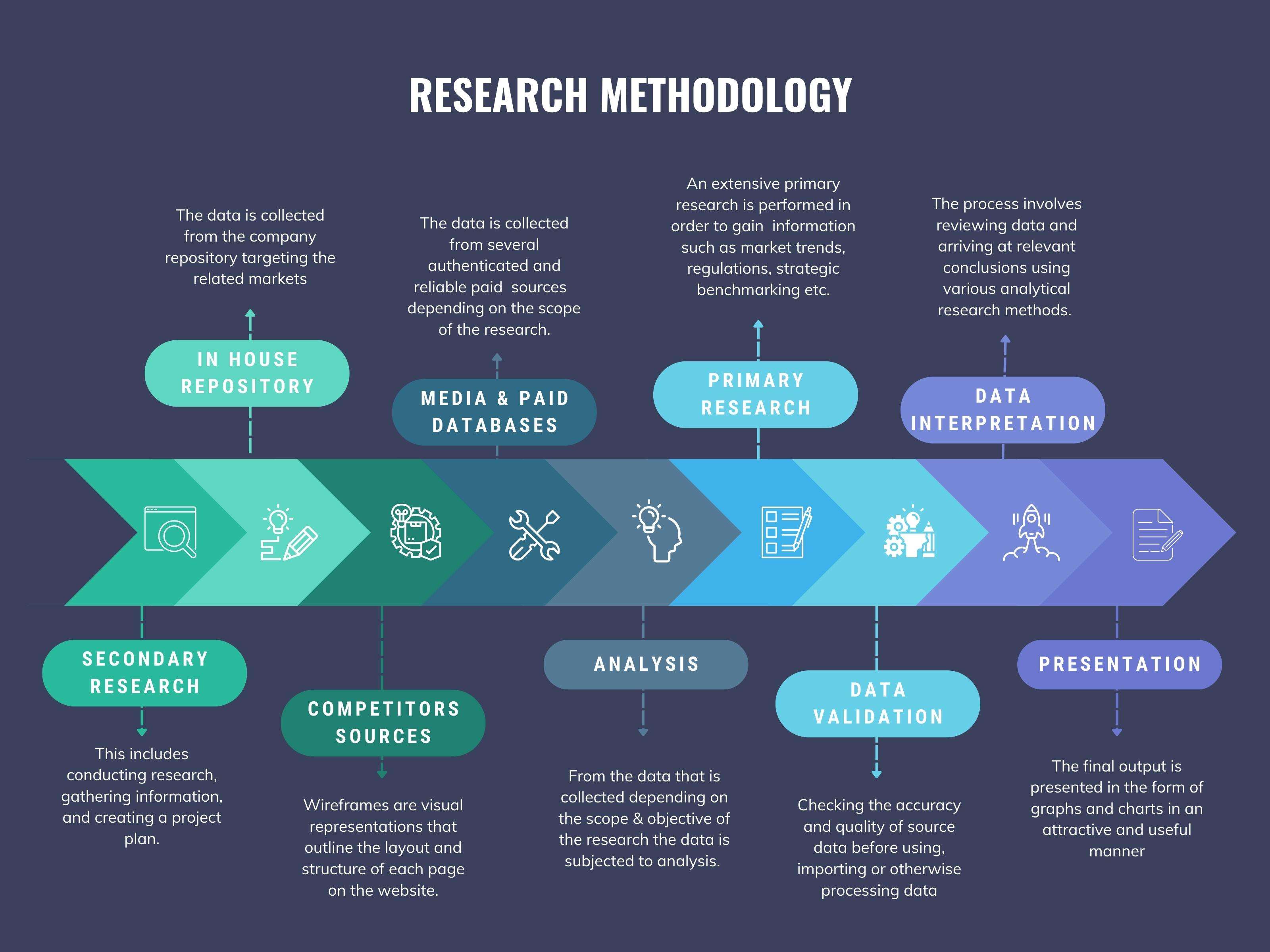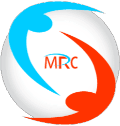
Molecular Sieves Market
Molecular Sieves Market Forecasts to 2030 - Global Analysis By Material (Clay, Porous Glass and Other Materials), Component (13X, 3A, 4A, 5A and Zeolite Y), Size (Mesoporous, Macroporous and Microporous), Shape, End User and By Geography

|
Years Covered |
2021-2030 |
|
Estimated Year Value (2023) |
US $4.51 BN |
|
Projected Year Value (2030) |
US $7.38 BN |
|
CAGR (2023 - 2030) |
7.3% |
|
Regions Covered |
North America, Europe, Asia Pacific, South America, and Middle East & Africa |
|
Countries Covered |
US, Canada, Mexico, Germany, UK, Italy, France, Spain, Japan, China, India, Australia, New Zealand, South Korea, Rest of Asia Pacific, South America, Argentina, Brazil, Chile, Middle East & Africa, Saudi Arabia, UAE, Qatar, and South Africa |
|
Largest Market |
Asia Pacific |
|
Highest Growing Market |
Asia Pacific |
According to Stratistics MRC, the Global Molecular Sieves Market is accounted for $4.51 billion in 2023 and is expected to reach $7.38 billion by 2030 growing at a CAGR of 7.3% during the forecast period. Molecular sieves are crystalline metal aluminosilicates with uniform pores that selectively adsorb molecules based on size and polarity. They find extensive use in various industrial processes, including dehydration, gas purification, and separation. Additionally, molecular sieves play a crucial role in the pharmaceutical and chemical sectors, where they are utilized for solvent drying, gas purification and the separation of valuable compounds. Highly porous materials having a well defined structure made up of regular cavities and channels are referred to as molecular sieves. Usually, they are other inorganic materials or crystalline metal aluminosilicates.
According to the BP Statistical Review of World Energy 2022, total oil refinery throughput worldwide was roughly 79,229 thousand barrels per day, a 5% increase over the previous year. According to the BP Statistical Review of Global Energy 2022, approximately 4,221 million metric tonnes of volume were produced in 2021.

Market Dynamics:
Driver:
Growing focus on sustainability and green technologies
As the world increasingly prioritizes environmental protection and resource conservation, industries are turning to molecular sieves for their role in enabling cleaner and more efficient processes. Molecular sieves are vital components in various green technologies, such as renewable energy production, where they facilitate the purification and separation of gases like hydrogen and methane. With their ability to remove impurities and contaminants from gases and liquids while minimizing waste and energy consumption, molecular sieves play a crucial role in advancing sustainability objectives across multiple sectors.
Restraint:
Volatility in raw material prices
Key components like zeolites and silica gel, essential for manufacturing molecular sieves, are subject to fluctuations in pricing due to various factors such as supply chain disruptions, changes in demand dynamics, and geopolitical tensions. These price fluctuations can directly impact production costs for manufacturers, leading to uncertainty in pricing strategies and profit margins. However, sudden increases in raw material costs may necessitate adjustments in product pricing, potentially affecting competitiveness and customer loyalty. The unpredictability of raw material prices can pose challenges in inventory management and long-term planning for both manufacturers and end-users, leading to increased risks and operational complexities.
Opportunity:
Technological advancements
Continuous research and development efforts have led to the creation of advanced molecular sieve materials with improved adsorption capacities, selectivity, and stability, thereby expanding their applicability across various industries. These advancements have enabled the development of specialized molecular sieves tailored to specific industrial processes, such as zeolite-based molecular sieves for gas purification or silica gel-based sieves for solvent drying. Additionally, innovations in manufacturing processes have resulted in cost-effective production methods and increased scalability, making molecular sieves more accessible to a broader range of applications and industries.
Threat:
Competition from alternative technologies
While molecular sieves offer high efficiency and versatility in adsorption and separation processes, they face competition from alternative technologies offering similar functionalities. These alternatives may include membrane-based separation technologies, activated carbon adsorbents, and polymeric resins, among others. Depending on specific application requirements, end-users may opt for these alternatives due to factors such as lower initial investment costs, easier scalability, or better performance under certain conditions. However, advancements in alternative technologies, such as the development of more selective membranes or novel adsorbent materials, further intensify competition by offering improved capabilities and cost-effectiveness.
Covid-19 Impact:
Initially, the market experienced disruptions in the supply chain due to lockdowns, travel restrictions, and temporary closures of manufacturing facilities, leading to delays in production and delivery schedules. The widespread economic slowdown resulted in decreased demand from industries such as automotive, construction, and manufacturing, which are major consumers of molecular sieves for various applications. However, the pandemic accelerated trends towards sustainability and green technologies, driving demand for molecular sieves in renewable energy production and environmental applications.
The clay segment is expected to be the largest during the forecast period
Clay segment commanded the largest share of the market throughout the projection period, due to the high surface area, excellent adsorption properties, and thermal stability. These attributes make clay-based molecular sieves well-suited for various applications, including gas separation, catalysis, and moisture removal. Additionally, the increasing focus on sustainability and green technologies has spurred the demand for clay-based molecular sieves, as they are derived from abundant natural resources and can be regenerated for prolonged use, aligning with environmental conservation efforts.
The pellets segment is expected to have the highest CAGR during the forecast period
Pellets segment is poised to witness lucrative growth over the forecast period. Pelletized molecular sieves offer distinct advantages over other forms, including ease of handling, uniformity in size and shape, and enhanced mechanical strength, making them ideal for various industrial applications. Their spherical structure allows for efficient packing and flow characteristics, facilitating seamless integration into existing processes and equipment. Moreover, pelletized molecular sieves exhibit excellent adsorption properties and thermal stability, ensuring reliable performance in demanding environments such as gas and liquid separation, dehydration, and purification processes.
Region with largest share:
Asia Pacific region commanded the largest share of the market throughout the extrapolated period. Rapid industrialization, urbanization and economic growth in countries such as China, India, and Japan have led to increased demand for molecular sieves across diverse industries including oil and gas, petrochemicals, pharmaceuticals, and manufacturing. These industries rely heavily on molecular sieves for applications such as gas and liquid separation, dehydration, purification, and catalysis, thereby propelling market growth.
Region with highest CAGR:
Asia Pacific region is poised to witness lucrative growth over the projected period as stringent environmental regulations aimed at reducing emissions and enhancing product quality have further spurred the adoption of molecular sieves in the region. Stringent environmental regulations aimed at curbing emissions and ensuring air and water quality have compelled industries to adopt cleaner and more efficient production processes. Additionally, ongoing investments in infrastructure development, coupled with rising investments in renewable energy and green technologies, are driving the demand for molecular sieves for applications such as gas purification and hydrogen production.

Key players in the market
Some of the key players in Molecular Sieves market include Cabot Corporation, Dalian Adsorbent Co Ltd, Eastman Chemical Co, Honeywell International Inc., Kuraray Co. Ltd, Palmer Holland, Resonac Holdings Corporation, Tosoh Corporation, W. R. Grace & Co.-Conn., Zeochem AG and Zeolyst International.
Key Developments:
In October 2022, Palmer Holland announced its new distribution agreement with Zeochem. According to the agreement, Palmer Holland will be a channel partner in the United States and Canada for Zeochem's Purmol line of molecular sieves. Purmol powders are excellent moisture scavengers for polyurethane coatings, adhesives, sealants, and elastomers.
In July 2022, Omron Healthcare announced its latest advancement in the oxygen therapy category with the launch of a portable oxygen concentrator, which is a medical molecular sieve-based Oxygen concentrator providing a continuous supply of high-purity oxygen (5L per minute) with more than 90% high concentration output.
Materials Covered:
• Clay
• Porous Glass
• Other Materials
Components Covered:
• 13X
• 3A
• 4A
• 5A
• Zeolite Y
Sizes Covered:
• Mesoporous
• Macroporous
• Microporous
Shapes Covered:
• Beads
• Pellets
• Powder
• Other Shapes
End Users Covered:
• Automotive
• Coatings
• Detergents
• Industrial Gas Production
• Oil & Gas
• Wastewater Treatment
• Other End Users
Regions Covered:
• North America
o US
o Canada
o Mexico
• Europe
o Germany
o UK
o Italy
o France
o Spain
o Rest of Europe
• Asia Pacific
o Japan
o China
o India
o Australia
o New Zealand
o South Korea
o Rest of Asia Pacific
• South America
o Argentina
o Brazil
o Chile
o Rest of South America
• Middle East & Africa
o Saudi Arabia
o UAE
o Qatar
o South Africa
o Rest of Middle East & Africa
What our report offers:
- Market share assessments for the regional and country-level segments
- Strategic recommendations for the new entrants
- Covers Market data for the years 2021, 2022, 2023, 2026, and 2030
- Market Trends (Drivers, Constraints, Opportunities, Threats, Challenges, Investment Opportunities, and recommendations)
- Strategic recommendations in key business segments based on the market estimations
- Competitive landscaping mapping the key common trends
- Company profiling with detailed strategies, financials, and recent developments
- Supply chain trends mapping the latest technological advancements
Free Customization Offerings:
All the customers of this report will be entitled to receive one of the following free customization options:
• Company Profiling
o Comprehensive profiling of additional market players (up to 3)
o SWOT Analysis of key players (up to 3)
• Regional Segmentation
o Market estimations, Forecasts and CAGR of any prominent country as per the client's interest (Note: Depends on feasibility check)
• Competitive Benchmarking
Benchmarking of key players based on product portfolio, geographical presence, and strategic alliances
Table of Contents
1 Executive Summary
2 Preface
2.1 Abstract
2.2 Stake Holders
2.3 Research Scope
2.4 Research Methodology
2.4.1 Data Mining
2.4.2 Data Analysis
2.4.3 Data Validation
2.4.4 Research Approach
2.5 Research Sources
2.5.1 Primary Research Sources
2.5.2 Secondary Research Sources
2.5.3 Assumptions
3 Market Trend Analysis
3.1 Introduction
3.2 Drivers
3.3 Restraints
3.4 Opportunities
3.5 Threats
3.6 End User Analysis
3.7 Emerging Markets
3.8 Impact of Covid-19
4 Porters Five Force Analysis
4.1 Bargaining power of suppliers
4.2 Bargaining power of buyers
4.3 Threat of substitutes
4.4 Threat of new entrants
4.5 Competitive rivalry
5 Global Molecular Sieves Market, By Material
5.1 Introduction
5.2 Clay
5.3 Porous Glass
5.4 Other Materials
6 Global Molecular Sieves Market, By Component
6.1 Introduction
6.2 13X
6.3 3A
6.4 4A
6.5 5A
6.6 Zeolite Y
7 Global Molecular Sieves Market, By Size
7.1 Introduction
7.2 Mesoporous
7.3 Macroporous
7.4 Microporous
8 Global Molecular Sieves Market, By Shape
8.1 Introduction
8.2 Beads
8.3 Pellets
8.4 Powder
8.5 Other Shapes
9 Global Molecular Sieves Market, By End User
9.1 Introduction
9.2 Automotive
9.3 Coatings
9.4 Detergents
9.5 Industrial Gas Production
9.6 Oil & Gas
9.7 Wastewater Treatment
9.8 Other End Users
10 Global Molecular Sieves Market, By Geography
10.1 Introduction
10.2 North America
10.2.1 US
10.2.2 Canada
10.2.3 Mexico
10.3 Europe
10.3.1 Germany
10.3.2 UK
10.3.3 Italy
10.3.4 France
10.3.5 Spain
10.3.6 Rest of Europe
10.4 Asia Pacific
10.4.1 Japan
10.4.2 China
10.4.3 India
10.4.4 Australia
10.4.5 New Zealand
10.4.6 South Korea
10.4.7 Rest of Asia Pacific
10.5 South America
10.5.1 Argentina
10.5.2 Brazil
10.5.3 Chile
10.5.4 Rest of South America
10.6 Middle East & Africa
10.6.1 Saudi Arabia
10.6.2 UAE
10.6.3 Qatar
10.6.4 South Africa
10.6.5 Rest of Middle East & Africa
11 Key Developments
11.1 Agreements, Partnerships, Collaborations and Joint Ventures
11.2 Acquisitions & Mergers
11.3 New Product Launch
11.4 Expansions
11.5 Other Key Strategies
12 Company Profiling
12.1 Cabot Corporation
12.2 Dalian Adsorbent Co Ltd
12.3 Eastman Chemical Co
12.4 Honeywell International Inc.
12.5 Kuraray Co. Ltd
12.6 Palmer Holland
12.7 Resonac Holdings Corporation
12.8 Tosoh Corporation
12.9 W. R. Grace & Co.-Conn.
12.10 Zeochem AG
12.11 Zeolyst International
List of Tables
1 Global Molecular Sieves Market Outlook, By Region (2021-2030) ($MN)
2 Global Molecular Sieves Market Outlook, By Material (2021-2030) ($MN)
3 Global Molecular Sieves Market Outlook, By Clay (2021-2030) ($MN)
4 Global Molecular Sieves Market Outlook, By Porous Glass (2021-2030) ($MN)
5 Global Molecular Sieves Market Outlook, By Other Materials (2021-2030) ($MN)
6 Global Molecular Sieves Market Outlook, By Component (2021-2030) ($MN)
7 Global Molecular Sieves Market Outlook, By 13X (2021-2030) ($MN)
8 Global Molecular Sieves Market Outlook, By 3A (2021-2030) ($MN)
9 Global Molecular Sieves Market Outlook, By 4A (2021-2030) ($MN)
10 Global Molecular Sieves Market Outlook, By 5A (2021-2030) ($MN)
11 Global Molecular Sieves Market Outlook, By Zeolite Y (2021-2030) ($MN)
12 Global Molecular Sieves Market Outlook, By Size (2021-2030) ($MN)
13 Global Molecular Sieves Market Outlook, By Mesoporous (2021-2030) ($MN)
14 Global Molecular Sieves Market Outlook, By Macroporous (2021-2030) ($MN)
15 Global Molecular Sieves Market Outlook, By Microporous (2021-2030) ($MN)
16 Global Molecular Sieves Market Outlook, By Shape (2021-2030) ($MN)
17 Global Molecular Sieves Market Outlook, By Beads (2021-2030) ($MN)
18 Global Molecular Sieves Market Outlook, By Pellets (2021-2030) ($MN)
19 Global Molecular Sieves Market Outlook, By Powder (2021-2030) ($MN)
20 Global Molecular Sieves Market Outlook, By Other Shapes (2021-2030) ($MN)
21 Global Molecular Sieves Market Outlook, By End User (2021-2030) ($MN)
22 Global Molecular Sieves Market Outlook, By Automotive (2021-2030) ($MN)
23 Global Molecular Sieves Market Outlook, By Coatings (2021-2030) ($MN)
24 Global Molecular Sieves Market Outlook, By Detergents (2021-2030) ($MN)
25 Global Molecular Sieves Market Outlook, By Industrial Gas Production (2021-2030) ($MN)
26 Global Molecular Sieves Market Outlook, By Oil & Gas (2021-2030) ($MN)
27 Global Molecular Sieves Market Outlook, By Wastewater Treatment (2021-2030) ($MN)
28 Global Molecular Sieves Market Outlook, By Other End Users (2021-2030) ($MN)
Note: Tables for North America, Europe, APAC, South America, and Middle East & Africa Regions are also represented in the same manner as above.
List of Figures
RESEARCH METHODOLOGY

We at ‘Stratistics’ opt for an extensive research approach which involves data mining, data validation, and data analysis. The various research sources include in-house repository, secondary research, competitor’s sources, social media research, client internal data, and primary research.
Our team of analysts prefers the most reliable and authenticated data sources in order to perform the comprehensive literature search. With access to most of the authenticated data bases our team highly considers the best mix of information through various sources to obtain extensive and accurate analysis.
Each report takes an average time of a month and a team of 4 industry analysts. The time may vary depending on the scope and data availability of the desired market report. The various parameters used in the market assessment are standardized in order to enhance the data accuracy.
Data Mining
The data is collected from several authenticated, reliable, paid and unpaid sources and is filtered depending on the scope & objective of the research. Our reports repository acts as an added advantage in this procedure. Data gathering from the raw material suppliers, distributors and the manufacturers is performed on a regular basis, this helps in the comprehensive understanding of the products value chain. Apart from the above mentioned sources the data is also collected from the industry consultants to ensure the objective of the study is in the right direction.
Market trends such as technological advancements, regulatory affairs, market dynamics (Drivers, Restraints, Opportunities and Challenges) are obtained from scientific journals, market related national & international associations and organizations.
Data Analysis
From the data that is collected depending on the scope & objective of the research the data is subjected for the analysis. The critical steps that we follow for the data analysis include:
- Product Lifecycle Analysis
- Competitor analysis
- Risk analysis
- Porters Analysis
- PESTEL Analysis
- SWOT Analysis
The data engineering is performed by the core industry experts considering both the Marketing Mix Modeling and the Demand Forecasting. The marketing mix modeling makes use of multiple-regression techniques to predict the optimal mix of marketing variables. Regression factor is based on a number of variables and how they relate to an outcome such as sales or profits.
Data Validation
The data validation is performed by the exhaustive primary research from the expert interviews. This includes telephonic interviews, focus groups, face to face interviews, and questionnaires to validate our research from all aspects. The industry experts we approach come from the leading firms, involved in the supply chain ranging from the suppliers, distributors to the manufacturers and consumers so as to ensure an unbiased analysis.
We are in touch with more than 15,000 industry experts with the right mix of consultants, CEO's, presidents, vice presidents, managers, experts from both supply side and demand side, executives and so on.
The data validation involves the primary research from the industry experts belonging to:
- Leading Companies
- Suppliers & Distributors
- Manufacturers
- Consumers
- Industry/Strategic Consultants
Apart from the data validation the primary research also helps in performing the fill gap research, i.e. providing solutions for the unmet needs of the research which helps in enhancing the reports quality.
For more details about research methodology, kindly write to us at info@strategymrc.com
Frequently Asked Questions
In case of any queries regarding this report, you can contact the customer service by filing the “Inquiry Before Buy” form available on the right hand side. You may also contact us through email: info@strategymrc.com or phone: +1-301-202-5929
Yes, the samples are available for all the published reports. You can request them by filling the “Request Sample” option available in this page.
Yes, you can request a sample with your specific requirements. All the customized samples will be provided as per the requirement with the real data masked.
All our reports are available in Digital PDF format. In case if you require them in any other formats, such as PPT, Excel etc you can submit a request through “Inquiry Before Buy” form available on the right hand side. You may also contact us through email: info@strategymrc.com or phone: +1-301-202-5929
We offer a free 15% customization with every purchase. This requirement can be fulfilled for both pre and post sale. You may send your customization requirements through email at info@strategymrc.com or call us on +1-301-202-5929.
We have 3 different licensing options available in electronic format.
- Single User Licence: Allows one person, typically the buyer, to have access to the ordered product. The ordered product cannot be distributed to anyone else.
- 2-5 User Licence: Allows the ordered product to be shared among a maximum of 5 people within your organisation.
- Corporate License: Allows the product to be shared among all employees of your organisation regardless of their geographical location.
All our reports are typically be emailed to you as an attachment.
To order any available report you need to register on our website. The payment can be made either through CCAvenue or PayPal payments gateways which accept all international cards.
We extend our support to 6 months post sale. A post sale customization is also provided to cover your unmet needs in the report.
Request Customization
We provide a free 15% customization on every purchase. This requirement can be fulfilled for both pre and post sale. You may send your customization requirements through email at info@strategymrc.com or call us on +1-301-202-5929.
Note: This customization is absolutely free until it falls under the 15% bracket. If your requirement exceeds this a feasibility check will be performed. Post that, a quote will be provided along with the timelines.
WHY CHOOSE US ?

Assured Quality
Best in class reports with high standard of research integrity

24X7 Research Support
Continuous support to ensure the best customer experience.

Free Customization
Adding more values to your product of interest.

Safe & Secure Access
Providing a secured environment for all online transactions.

Trusted by 600+ Brands
Serving the most reputed brands across the world.
